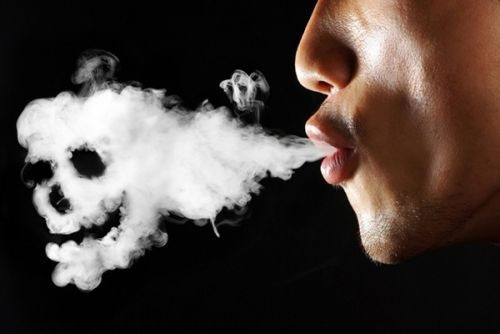Definisi
Nikotin merupakan substansi yang ditemukan di seluruh produk tembakau dan di beberapa cairan rokok elektronik. Substansi tersebut memiliki rasa candu yang tinggi dan ditemukan di tanaman tembakau. Nikotin dapat dihasilkan secara sintetis di laboratorium. Nikotin sendiri berasal dari spesies Nicotiana, dimana tanaman tembakau (dari Amerika Selatan sebelum menyebar ke Amerika Utara, Afrika dan Australia) dan bagian dari keluarga tanaman nightshade.
Nikotin memberikan efek perasaan rasa baik dan relaksasi serta meningkatkan detak jantung dan jumlah oksigen yang digunakan oleh jantung. Ketika nikotin masuk ke dalam tubuh, nikotin menyebabkan munculnya endorfin. Endorfin membantu mengurangi stress, mengurangi rasa nyeri, dan meningkatkan perasaan sejahtera.
Tubuh menyerap nikotin dengan cepat ke dalam pembuluh darah sehingga mencapai ke otak sehingga tubuh merasa diberikan hal yang membuat senang. Nikotin dalam tubuh dan perasaan yang diberikan memiliki umur yang pendek. Hal ini dapat menyebabkan suatu siklus yang membuat keinginan untuk terus menerus merokok untuk mendapatkan sensasi menyenangkan tersebut.
Nikotin dapat meningkatkan hormon dopamin. Dopamin adalah neurotransmitter atau zat yang digunakan otak untuk menghasilkan perasaan senang. Penggunaan nikotin yang terlalu sering dapat mengubah kinerja otak dalam pengendalian diri, stress, dan kemampuan untuk belajar. Sehingga penggunaan jangka panjang dapat menyebabkan ketergantungan dan efek samping (withdrawal syndrome) ketika seseorang tidak merokok.
Nicotine withdrawal syndrome (Gejala putus nikotin) adalah kumpulan gejala, baik itu fisik, mental, atau emosi, yang dirasakan ketika nikotin meninggalkan tubuh anda. Ketika tubuh mengurangi atau menghentikan penggunaan produk nikotin, tubuh akan merasa kekurangan nikotin sehingga merasakan gejala yang tidak nyaman. Pada beberapa pasien, gejala dapat berupa perasaan keinginan untuk merokok kembali, rasa mual, sakit kepala, hingga mudah marah.
Penyebab
Nikotin akan terikat pada reseptor tertentu di otak. Hal ini menyebabkan otak melepaskan subtansi yang disebut dengan dopamin. Dopamin memberikan sensasi perasaan “baik”. Selama anda menggunakan produk mengandung nikotin, dopamin akan terus menerus dilepaskan.
Pada Individu yang berhenti merokok atau berhenti menggunakan produk yang mengandung nikotin, reseptor otak individu tersebut akan tidak akan terstimulasi oleh nikotin. Hal ini membuat dopamin semakin sedikit dilepas.
Jumlah dopamin yang sedikit di pusat sensasi yang mempengaruhi mood dan perilaku, akan menyebabkan efek samping. Nikotin akan mengubah keseimbangan penyampaian pesan kimia di otak. Sehingga pemberhentian penggunaan nikotin akan menyebabkan perubahan keseimbangan kimia dan dapat menyebabkan gejala samping fisik dan yang lainnya.
Faktor Resiko
Pengguna tembakau memiliki risiko kecanduan. Pencegahan terbaik adalah dengan menghindari mengkonsumsi zat yang mengandung tembakau. Beberapa faktor risiko dari kecanduan nikotin adalah riwayat keluarga dengan kecanduan nikotin atau keluarga yang tumbuh dengan perokok akan memiliki risiko untuk turut merokok.
Gejala
Gejala putus nikotin bervariasi antar individu. Beratnya dari gejala yang dirasakan bergantung dari frekuensi penggunaan produk nikotin yang digunakan serta jumlah nikotin yang ada dalam produk nikotin yang dikonsumsi.
Beberapa gejala yang umum antara lain :
- Keingina akan nikotin. Gejala ini merupakan gejala paling umum
- Sakit kepala
- Mual
- Pusing
- Perasaan cemas, mudah teriritasi, marah
- Perasaan frustrasi, sedih, atau depresi
- Kesulitan untuk tidur
- Kesulitan untuk berkonsentrasi
- Merasa capek, lelah, atau mengantuk
- Meningkatnya nafsu makan dan peningkatan berat badan
- Konstipasi dan kembung
- Diare
- Batuk, mulut kering, dan hidung berair
- Sesak dada
Diagnosa
Ketergantungan nikotin akan dikategorikan berdasarkan hasil dari instrumen diagnosis seperti Diagnostic Statistical Manual (DSM) oleh Asosiasi Psikiatri Amerika (American Psychiatric Association) dan dari ketergantungan atas tembakau.
Kriteria dari gejala putus nikotin tergantung dari:
- Riwayat penggunaan harian atas nikotin dalam periode beberapa minggu
- Tidak menggunakan nikotin atau pengurangan jumlah nikotin yang dikonsumsi dalam rentang waktu 24 jam dengan menunjukkan 4 atau lebih gejala putus nikotin.
Tata laksana
Terhadap perokok yang siap untuk berhenti merokok, dokter akan mendiskuskan hal yang terkait dengan pengobatan yang dapat membantu. Terapi pengganti nikotin dapat membantu mengurangi gejala putus nikotin. Terapi pengganti mengandung nikotin dalam jumlah kecil tetapi tidak mengandung senyawa kimia penyebab kanker atau komponen lain yang ditemukan di tembakau.
Nikotin dalam jumlah kecil dapat membantu membatasi gejala putus nikotin yang dirasakan. Individu akan merasa lebih baik dan nyaman sehingga memudahkan untuk berhenti menggunakan produk tembakau. Terapi pengganti nikotin dapat tersedia dalam bentuk patch, permen karet, lozenges, semprotan hidung, dan inhaler. Produk pengganti tersebut terjual dengan bebas (patch, permen karet, dan lozenge) atau membutuhkan resep dokter (spray hidung dan inhaler).
Selain terapi pengganti, obat lain yang digunakan untuk menangani gejala putus nikotin adalah obat antidepressan seperti bupropion dan vareniclin. Varenicilin merupakan obat yang dapat membantu menghentikan rokok dengan melakukan pembatasan pada efek yang membuat senang dari nikotin.
Terapi pengganti nikotin dan obat lain digunakan untuk menangani ketergantungan fisik pada nikotin. Namun terapi untuk membantu individu untuk mengatasi aspek emosi dan mental mungkin membutuhkan bantuan orang lain. Tanyakan pada dokter mengenai kelompok berhenti merokok untuk mendapatkan dukungan moral. Kombinasi antara terapi pengganti, obat, dan program yang membantu perubahan perilaku dapat meningkatkan kesempatan untuk berhenti dibandingkan dengan pengobatan yang menggunakan 1 metode saja.
Komplikasi
Nicotine withdrawal syndrome merupakan kondisi yang tidak membahayakan nyawa. Namun kondisi ini akan membuat terjadinya perubahan fisik dan perasaan ketika seseorang berhenti merokok.
- Nafsu makan meningkat dan berat badan meningkat
Ketika seseorang berhenti merokok, indra perasa dan pencium akan kembali ke keadaan normal. Hal ini memiliki efek samping positif dan membuat orang tersebut menginginkan makan lebih banyak dibandingkan saat merokok. Pada beberapa orang, keinginan tersebut mencakup keinginan atas makanan tinggi lemak dan gula walaupun sebelumnya mereka tidak menginginkannya sebelum merokok.
Sebagai pencegahan untuk mengatasi keinginan makan dan menurunkan kemungkinan kenaikan berat badan, pilihlah makanan atau cemilan sehat seperti wortel, kacang mentah, dan yoghurt rendah lemak. Jangan makan terburu-buru dan nikmati makanan yang dikonsumsi. Hindari distraksi saat makan dan melakukan kegiatan olah raga.
- Perubahan mental
Beberapa orang akan mengalami permasalahan mental. Pada beberapa orang yang pernah mengalami depresi di masa lalu, depresi dapat muncul kembali. Hal ini juga dapat terjadi pada orang dengan kondisi bipolar atau gangguan mental lainnya. Depresi terkait dengan putus nikotin umumnya bersifat sementara dan dapat berkurang seiring berjalannnya waktu.
Depresi merupakan kondisi yang dapat diobati tetapi dapat menjadi mengancam nyawa bila tidak diobati. Bila memiliki riwayat depresi, diskusikan dengan dokter terkait penanganan gejala selama proses berhenti merokok.
Pencegahan
Perokok yang berhenti merokok akan mengalami gejala putus nikotin dan tidak ada cara untuk menghindari proses ini. Dokter akan menyarankan beberapa produk obat bebas dan obat lain untuk mengurangi gejala yang dialami. Beberapa prosuk tersebut dapat menangani keinginan untuk mengkonsumsi nikotin.
Beberapa strategi perilaku untuk mengatasi gejala putus nikotin, antara lain :
- Mengonsumsi cairan atau makanan kaya serat untuk mempermudah konstipasi
- Meminum cairan untuk melegakan batuk
- Melakukan olahraga pernapasan untuk melegakan sesak dada
- Minum air, mengunyah permen karet bebas gula atau permen bebas gula untuk mengatasi mulut dan tenggorokan kering
- Mengatur pekerjaan untuk membantu memecah permasalahan konsentrasi
- Istirahat yang cukup dan mengambil istirahat singkat untuk mengatasi kelelahan
- Mengganti posisi perlahan untuk menghilangkan rasa pusing
- Meminum banyak air dan mengonsumsi makanan rendah kalori atau camilan sehat untuk mengatasi rasa lapar
- Tidak mengonsumsi minuman dan produk yang mengandung kafein (seperti cokelat) beberapa jam sebelum tidur
- Mendengarkan musim santai dan mematikan peralatan elektronik untuk membantu tidur
- Melakukan teknik relaksasi, mandi air hangat atau berjalan singkat untuk mengurangi rasa teriritasi
Kapan Harus ke Dokter
Bila berencana untuk berhenti merokok, berkonsultasi dengan dokter akan membantu dalam memberikan persiapan yang dibutuhkan. Hubungi dokter apabila mengalami gejala putus nikotin yang tidak dapat diatasi, dokter akan membantu memberikan opsi terbaik terapi pengganti nikotin.
Mau tahu informasi seputar penyakit lainnya? Cek di sini, ya!
- dr. Pandu Lesmana
Nicotine Withdrawal Syndrome (2021). Retrieved 27 February 2023, from https://my.clevelandclinic.org/health/diseases/21587-nicotine-withdrawal
What is Nicotine Withdrawal. (2021). Retrieved 27 February 2023, from https://www.webmd.com/smoking-cessation/understanding-nicotine-withdrawal-symptoms
Everything You Need to Know About Nicotine Withdrawal. (2018). Retrieved 27 February 2023, from https://www.healthline.com/health/smoking/nicotine-withdrawal
Nicotine Addiction : What You Need to Know. (2018). Retrieved 27 February 2023, from https://www.healthline.com/health/nicotine-and-related-disorders
Nicotine Withdrawal Symptoms and How to Cope. (2023). Retrieved 27 February 2023, from https://www.medicalnewstoday.com/articles/323012
Everything you Need ti Know about Nicotine. (2022). Retrieved 27 February 2023, from https://www.medicalnewstoday.com/articles/323012








